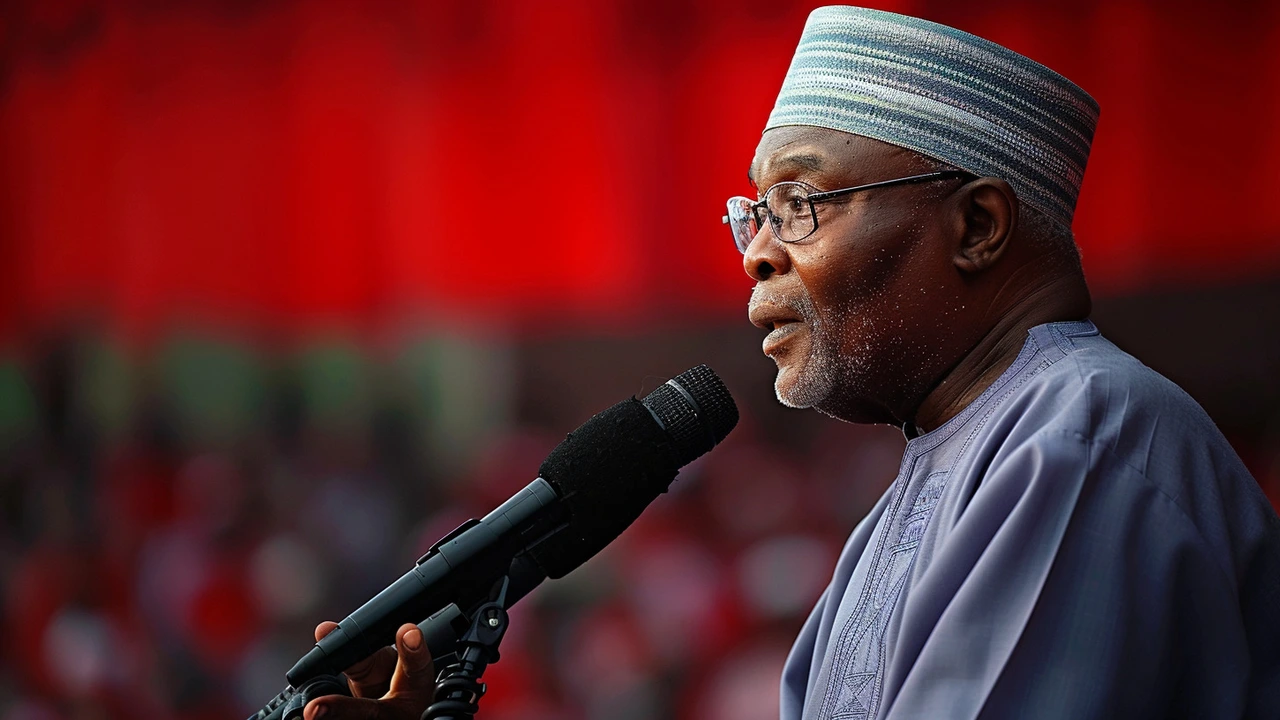Atiku Abubakar Urges Sacrifice, Unity, and Peace During Eid-el-Kabir Celebrations

Atiku Abubakar Calls for Sacrifice, Unity, and Peace During Eid-el-Kabir
As Muslims around the world celebrate the sacred festival of Eid-el-Kabir, former Nigerian Vice President Atiku Abubakar took the opportunity to underscore the importance of sacrifice, love, and unity. The annual celebration, also known as the Feast of Sacrifice, holds profound significance in the Islamic calendar, commemorating the willingness of Prophet Ibrahim to sacrifice his son Ismail in obedience to Allah's command. This act of faith and devotion lies at the heart of the festival's rituals and teachings.
During his address, Atiku Abubakar emphasized that the essence of Eid-el-Kabir goes beyond the act of slaughtering livestock. It's about the personal and communal sacrifices individuals make for the greater good of society. He urged Muslims and Nigerians at large to draw inspiration from Prophet Ibrahim's example, encouraging them to foster a spirit of selflessness and care for one another. “In our actions and dealings, we should always prioritize the collective well-being of our community and nation above individual interests,” he stated.
Promoting Unity and Tolerance
Atiku highlighted the critical need for unity and tolerance among Nigerians, especially during these challenging times. He pointed out that the diversity of Nigeria’s cultural and religious landscape should be seen as an asset rather than a division. By embracing our differences, we can build a stronger, more inclusive nation. He called on religious leaders and communities to continuously preach peace and mutual respect, reinforcing the ties that bind the nation together.
Religious tolerance and coexistence have long been cornerstones of Nigerian society, but recent years have seen a rise in tensions and conflicts. Atiku's message of peace and solidarity is particularly timely, urging every citizen to contribute to a harmonious and united Nigeria. “We must continue to live together in peace and confront the issues that divide us with fortitude and dialogue,” he shared.
Addressing Economic and Security Challenges
Furthermore, Atiku Abubakar did not shy away from addressing the pressing economic and security challenges facing Nigeria. He urged the government to take decisive action to mitigate these issues and to create an environment where all citizens can pursue their aspirations without fear or hardship. The former Vice President stressed that addressing these challenges is crucial for securing the nation’s future.
The current economic landscape in Nigeria is punctuated by inflation, unemployment, and a volatile currency. In his message, Atiku highlighted the importance of developing policies that stimulate economic growth and provide opportunities for all, particularly the youth. He argued for a more equitable distribution of resources and improved social services to enhance the quality of life for every Nigerian.
A Period of Forgiveness and Renewal
Eid-el-Kabir, which is also marked by prayers and charitable acts, provides an opportunity for forgiveness and renewal. It’s a time when Muslims reflect on their personal growth and seek to mend broken relationships. Atiku’s call for sacrifice and love dovetails perfectly with the festival’s ethos, reminding Nigerians that through forgiveness and reconciliation, they can overcome adversity and build a brighter future together.
Communities come together during this festival to offer help to those in need, which is a core tenet of the Islamic faith. By distributing meat from the sacrificed animals to the less fortunate, Muslims ensure that everyone can share in the joy and blessings of Eid-el-Kabir. Atiku lauded these acts of charity, urging Nigerians to continue supporting one another, especially in these tough times.
The Significance of Eid-el-Kabir
Eid-el-Kabir is one of the most important religious holidays in Islam, celebrated with fervor by millions of Muslims worldwide. The festival honors the willingness of Prophet Ibrahim to sacrifice his son Ismail as an act of obedience to God. However, God provided a ram to sacrifice instead, sparing Ismail’s life. This narrative is central to the commemoration and involves the ritual sacrifice of livestock, with the meat shared among family, friends, and the less fortunate.
The festival also culminates in a large communal prayer and several days of festivity. Families gather, exchange gifts, and express gratitude for their blessings. In his message, Atiku encouraged people to remain mindful of the festival's deeper meanings and to let them guide their actions and interactions.
Conclusion
Atiku Abubakar’s message during Eid-el-Kabir serves as a poignant reminder of the values that can help unify and strengthen Nigeria. By embracing sacrifice, love, and peace, Nigerians can navigate their challenges more effectively and build a future rooted in mutual respect and understanding. As the nation celebrates this sacred occasion, the underlying call for unity and compassion is more relevant than ever.
Write a comment